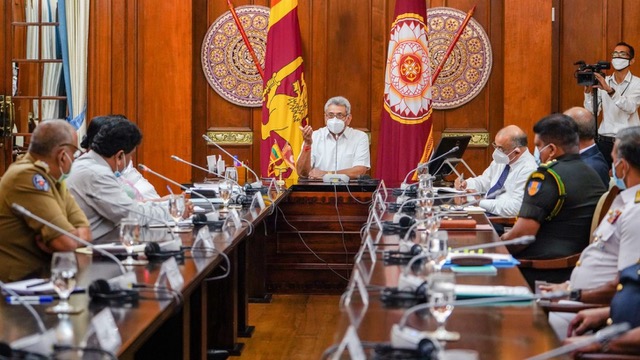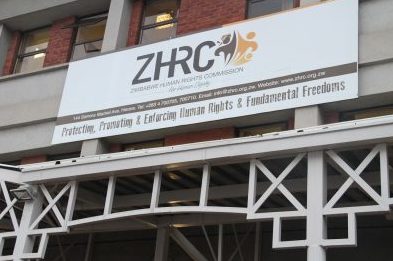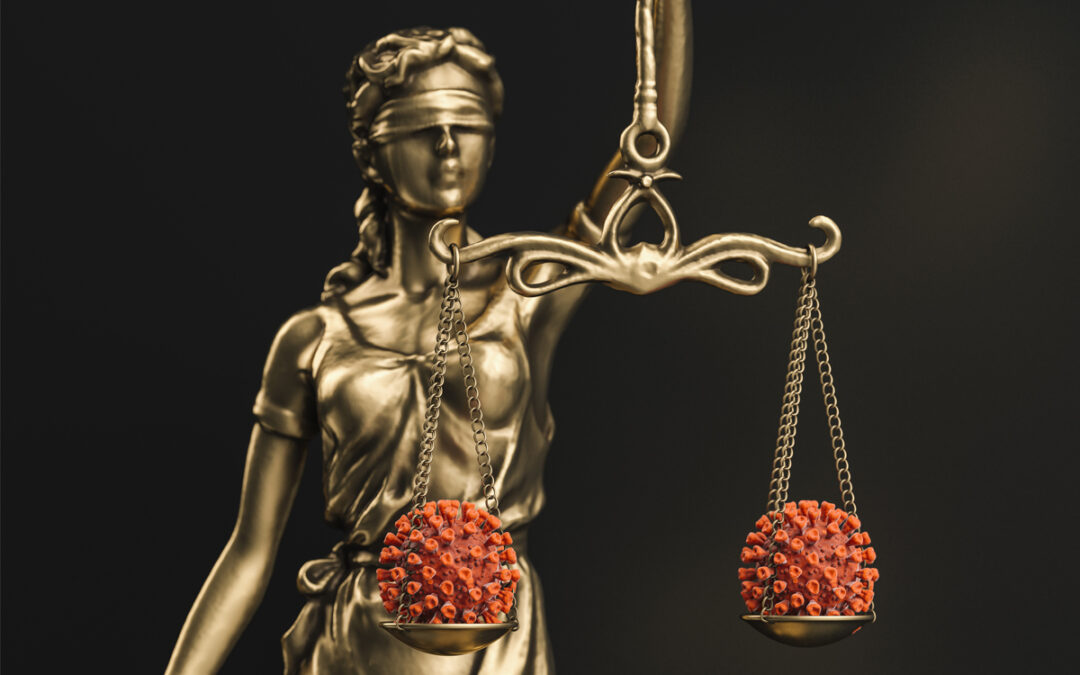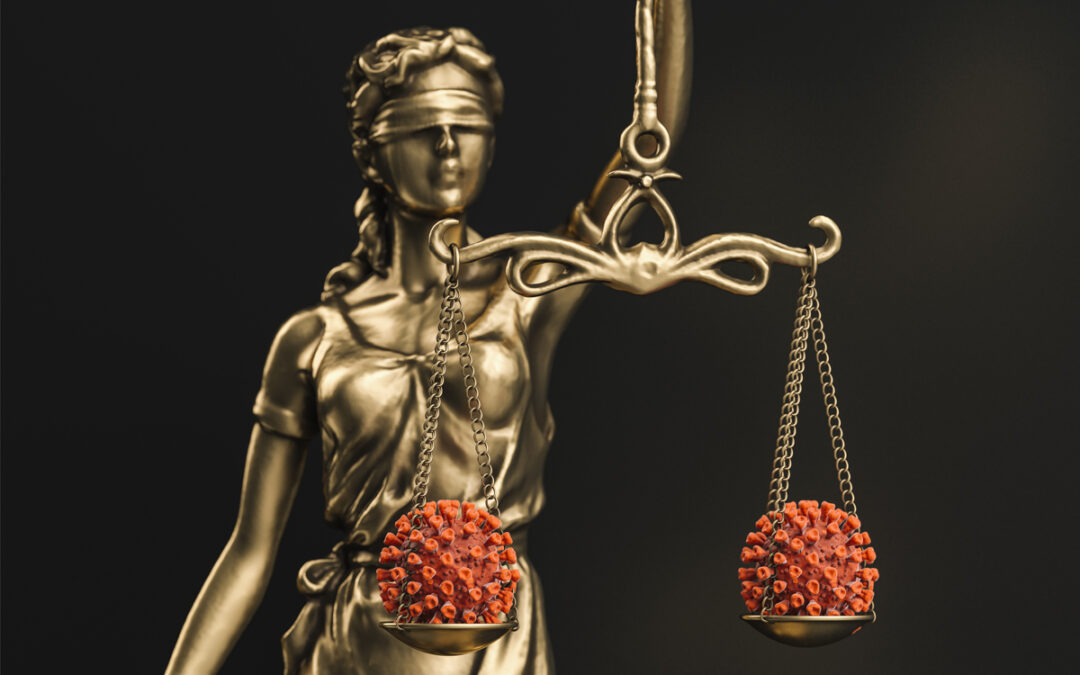
Jun 5, 2020 | News
The ICJ today condemned the proclamation by the Sri Lankan president to establish a Presidential Task Force dominated by the security forces and called for the proclamation to be rescinded.
On June 2, 2020, Sri Lankan President Gotabaya Rajapaksa issued an extraordinary gazette establishing a 13-member “Presidential Task Force to build a Secure Country, Disciplined, Virtuous and Lawful Society.” The Task Force is composed entirely of military, intelligence and police officials. It is to be headed by Defence Secretary, Retired Major General Kamal Gunaratne.
“This Presidential Task Force constitutes another act of over-reach by a government seeking to take advantage of the COVID-19 pandemic to further expand its powers,” said Frederick Rawski, ICJ’s Regional Director for Asia and the Pacific. “Its mandate is overbroad, and it empowers its military and police membership – including alleged war criminals – at a time when strong, independent, civilian-led policy-making is what is needed.”
The Task Force is given a sweeping mandate which includes:
- “taking necessary immediate steps to curb the illegal activities of social groups which are violating the law”
- “taking measures for prevention of the drug menace…”
- “taking legal action against persons responsible for illegal and antisocial activities conducted in Sri Lanka while locating in other countries”
- “investigating and preventing any illegal and antisocial activities in and around prisons.”
The task force also has the power to “conduct investigations and to issue directions as may be necessary in connection with the functions entrusted to it.” This includes issuing instructions to government officials to comply with its directives or be reported to the President.
The ICJ raised concerns that the task force has not been established on proper legal foundations. It is apparently pursuant to the broad, but ill-defined presidential powers under Article 33 of the Constitution.
The ICJ said that the task force could effectively usurp the powers and functions normally reserved for civilian authorities, under rule of law principles and as established by the Constitution and relevant enabling legislations.
Article 42 (1) of the Constitution provides that the “Cabinet of Ministers shall be charged with the direction and control of the Government.” Law enforcement and public officials under the direction of the relevant Minister have been designated under existing laws to specifically address drug-related offences and any other illegal and/ or criminal activity that seemingly fall within the mandate of this Task Force. The independence of public officials will be compromised if they are compelled to report to a military-dominated body. The Gazette provides no detail on how this reporting process would operate, or the legal consequences of refusing to act as instructed.
“Few doubt that this task force will be used as another tool to suppress speech and target critics of the Sri Lankan government. It is disturbing that such a potentially consequential body has been formed pursuant to broad presidential powers, with no reference to judicial or parliamentary oversight,” said Rawski. “Vague and overbroad language such as ‘anti-social activities’ could effectively criminalize expression protected under international law. Such provisions are inconsistent with the rule of law and contravene the principle of legality.”
The task force’s military and police membership follows a pattern of recent military appointments to civil administrative positions by the incumbent President. The military personnel appointed include officials credibly accused of war crimes. Chairman Major General Kamal Gunaratne was the commander of the 53rd division and Major General Shavendra Silva was the commander of the 58th Division of the Sri Lankan Army. Both units were identified by multiple UN investigatory bodies as having been involved in the commission of serious crimes and human rights violations during the last stages of Sri Lanka’s decades-long armed conflict which ended in 2009.
The ICJ called upon President Gotabaya Rajapaksa to rescind the extraordinary gazette establishing the Presidential Task Force. The role of the military in public life must be strictly circumscribed and matters pertaining to civil administrcation should be executed by elected and public officials in respect of the rule of law and principles of democratic governance.
Contact
Frederick Rawski, ICJ’s Asia Pacific Regional Director, t: +66 2 619 84 77; e: frederick.rawski(a)icj.org

Jun 4, 2020 | News
The ICJ today urged the country’s authorities to take immediate measures to fully reconstitute the Zimbabwe Human Rights Commission (ZHRC) after its operations were effectively suspended following the expiry of the terms of office of four of its Commissioners on 7 May 2020.
One Commissioner had already resigned in 2018 meaning that the ZHRC no longer has the constitutionally required quorum for it to make certain decisions that are fundamental to the protection of human rights in Zimbabwe.
“The inability by the ZHRC to fully execute its constitutional mandate has serious implications on the ability of individuals -in particular victims of human rights violations -to access justice,” said Arnold Tsunga, Director of the ICJ Africa Programme.
“The role of ZHRC, as Zimbabwe’s national human rights institution is critical in providing an avenue for redress to victims of human rights violations and the general public,” he added.
Zimbabwe has been witnessing an escalation of human rights violations requiring investigation by a fully functioning and effective Commission.
This spate of human rights violations has had a disproportionate impact on the poor and economically vulnerable in the context of the Covid-19 lockdown measures.
There have been an increase in targeting of human rights defenders, civil society leaders and political opposition, which have included acts of enforced disappearance and torture and other ill-treatment.
The ICJ underlined that while redress for such violations required strong and independent judiciary as a guarantor of human rights, the role of fully functional ZHRC was critical to complement that of the judiciary.
The ICJ called upon the authorities in Zimbabwe, and in particular the Parliamentary Committee on Standing Rules and Orders, to act expeditiously to ensure that the vacant positions are filled without any further delay to enable the ZHRC effectively perform and discharge its constitutional mandate.
The ICJ said that failure by the responsible authorities to act expeditiously to fill the vacant positions violated the core values and principles the Constitution of Zimbabwe, in particular section 324 of the Constitution which provides that “all constitutional obligations must be performed diligently and without delay”.
In addition, the President to fill in any vacant position within three months of death or resignation of a Commissioner. The position of Commissioner Khombe became vacant on the 30 October 2018, and has not been filled to date.
Additional Information
The ZHRC is established as an independent institution under Chapter 12 of the Zimbabwe constitution with the general objective to “support and entrench human rights and democracy; to promote constitutionalism; to promote transparency and accountability in public institutions; to secure the observance of democratic values and principles by the State and all institutions and agencies of government, and government-controlled entities; and to ensure that injustices are remedied.”
On 26 May the Chairperson of the ZHRC, Dr. E.H Mugwadi, wrote a letter notifying “partners and stakeholders” of the retirement of four Commissioners, namely Dr Ellen Sithole (former Deputy Chairperson), Dr Joseph Kurebwa, Kwanele M. Jirira and Japhet Ndabeni-Ncube with effect from 7 May. The Chairperson noted that the retirement had left the Commission lacking the quorum to fulfil its constitutional obligations, particularly with respect to make policy resolutions and the adoption of monitoring and investigation reports. The Commission had also been unable to adopt Commission reports its activities.
International standards for effective and credible National Human Rights Institutions (NHRIs) are contained in the United Nations Principles relating to the Status of National Institutions (Paris Principles), which provide that NHRIs must be adequately resourced with sufficient institutional capacity to perform and discharge their responsibilities.
Contact:
Arnold Tsunga, ICJ Africa Director, t: +263 777 283 249; e-mail: arnold.tsunga(a)icj.org
Blessing Gorejena, ICJ Senior Legal Adviser, t: +263 772 151 989, e-mail: Blessing.Gorejena(a)icj.org

Jun 3, 2020 | Новости, Статьи
МКЮ призывает российские власти возбудить безотлагательное, независимое и тщательное расследование в связи с применением физической силы в отношении адвокатов Натальи Маговой, Дианы Ципиновой и Людмилы Кочесоковой, а также задержанием Дианы Ципиновой сотрудниками Министерства внутренних дел по Кабардино-Балкарии 21 мая 2020 года. Ответственные лица должны быть привлечены к ответственности, подчеркнула МКЮ.
По словам адвокатов, которые подтверждаются видеозаписями, размещенными в Интернете, они прибыли в ОМВД по Кабардино-Балкарии, чтобы представлять своего клиента, Ратмира Жилокова, еще одного адвоката, который был задержан 20 мая 2020 года, также в результате предполагаемого насилия со стороны полиции. Несмотря на просьбы адвокатов о предоставлении доступа к подзащитному, им не разрешили с ним встретиться. Вместо этого они были удалены из здания ОМВД с применением физической силы рядом сотрудников, что привело к драке. Кроме того, Диана Ципинова была задержана на несколько часов в здании ОМВД. Позже и она, и Ратмир Жилоков были освобождены.
«Применение физической силы в отношении адвокатов с целью воспрепятствовать их свиданию с подзащитным явно противоречит международному праву и стандартам в области прав человека, в том числе касающимся роли юристов», – отметил сегодня Тимур Шакиров, старший юридический советник Региональной программы МКЮ по Европе и Центральной Азии.
МКЮ также выражает обеспокоенность по поводу уголовного преследования адвоката Дианы Ципиновой (после инцидента 21 мая 2020 года) и Ратмира Жилокова, который был задержан 20 мая 2020 года, очевидно, в связи с попыткой защитить офис своего клиента от действий властей, которые он расценивал как незаконный обыск. Оба адвоката обвиняются в применении насилия в отношении сотрудников полиции.
Как сообщается, уголовное дело в отношении Дианы Ципиновой и Ратмира Жилокова было возбуждено после того, как они пожаловались на применение физической силы со стороны сотрудников МВД по Кабардино-Балкарской Республике.
МКЮ подчеркивает, что в соответствии с Принципами ООН, касающимися роли юристов, государства должны обеспечивать, чтобы юристы могли выполнять все свои профессиональные обязанности без запугивания, препятствий, преследования и неоправданного вмешательства, а также чтобы они не подвергались судебному преследованию за любые действия, совершенные в соответствии с признанными профессиональными обязанностями, нормами и этикой, а также угрозам такого преследования. Международное право в области прав человека также гарантирует право лица, лишенного свободы, встречаться со своим адвокатом.
Властям следует принять эффективные меры для предотвращения подобных действий в отношении адвокатов в будущем, а также для обеспечения того, чтобы адвокатам не препятствовали в представлении интересов своих клиентов в соответствии с законом, заявила МКЮ.
Кроме того, МКЮ призывает соответствующие власти прекратить уголовное расследование в отношении адвокатов в связи с попытками получить свидание со своими клиентами и защитить их интересы, а также в связи с любыми другими действиями, совершенными в рамках представительства доверителей, которые соответствовали их профессиональным обязанностям, нормам и этике.
Справочная информация:
По сведениям, размещенным на официальном сайте Следственного управления Следственного комитета РФ по Кабардино-Балкарии, в отношении Дианы Ципиновой и Ратмира Жилокова возбуждены уголовные дела по статье 318.1 (применение насилия, не опасного для жизни и здоровья представителя власти в связи с исполнением им своих должностных обязанностей) Уголовного кодекса Российской Федерации. В частности, Диана Ципинова обвиняется в применении насилия в отношении сотрудников ОМВД по Кабардино-Балкарской Республике 21 мая 2020 года, когда она запросила доступ к своему подзащитному. Ратмир Жилоков обвиняется в применении насилия в отношении сотрудников полиции, прибывших в офис его доверительницы для проведения обыска 20 мая 2020 года.
30 мая 2020 года суд первой инстанции избрал в отношении Дианы Ципиновой меру пресечения в виде запрета определенных действий сроком на два месяца.
Адвокат Ратмир Жилоков, который был задержан 20 мая и освобожден 21 мая 2020 года, утверждает, что сотрудники, которые прибыли в офис его доверительницы для производства обыска, не предоставили ему никаких правовых оснований или документа на производство обыска и что он подвергся насилию, когда оспаривал незаконность их действий. Суд первой инстанции избрал в его отношении меру пресечения в виде запрета определенных действий сроком на два месяца.
Федеральная палата адвокатов Российской Федерации выступила в поддержку адвокатов, подвергла критике вмешательство в их профессиональную деятельность и активно участвовала в защите адвокатов.
Ранее МКЮ уже выражала обеспокоенность в связи с насилием и запугиванием в отношении российских адвокатов.

Jun 3, 2020 | Nouvelles
L’ICJ est en première ligne pour fournir des outils juridiques efficaces et uniques pour lutter contre les mesures d’urgence illégales autour du Covid-19. Un appel de fonds d’urgence est lancé pour soutenir cette lutte.
Alors que le monde se concentre sur les effets de la pandémie sur la santé mondiale, des violations de l’Etat de Droit et des Droits de l’Homme ont lieu quotidiennement:
- Impossibilité d’accéder aux soins de santé des populations en Inde, en Libye et en Afrique du Sud;
- Interdictions de fait de l’avortement dans certains États des États-Unis;
- L’incapacité de s’attaquer adéquatement à la montée en flèche de la violence domestique dans le monde pendant le confinement;
- Les droits des réfugiés, des apatrides et des migrants démunis sont bafoués dans le monde entier;
- Les minorités LGBT se voient refuser l’accès aux abris pour leur protection;
- Interdiction de l’éducation sexuelle en Pologne;
- L’interdiction par la Hongrie de la reconnaissance légale du genre;
- … et plus
L’ICJ est en première ligne pour documenter, défendre et fournir des outils juridiques efficaces à la société civile et à la communauté juridique pour mettre fin à ces abus.
Cliquez sur Donate pour soutenir l’ICJ dans sa lutte contre ces attaques exceptionnelles contre les droits humains les plus fondamentaux.

Jun 3, 2020 | News
The ICJ is on the front lines to provide efficient and unique legal tools to fight illegal Covid-19 emergency measures. An emergency funding appeal is launched to support this fight.
While the world is focusing on the global health effects of the pandemic, rule of law and human rights violations are taking place, daily, unaccounted for:
- Failure to access healthcare of all people in India, Libya and South Africa;
- Enacting effective bans on abortion in some states in the USA;
- Failure to adequately tackle skyrocketing domestic violence around the globe during lockdown;
- Rights of refugees, stateless persons and destitute migrants being trampled on worldwide;
- LGBT minorities refused access to shelters;
- The abuse of emergency measures to restrict freedom of speech and erode the rule of law in Hungary;
- Attacks on the independence of the judiciary in Poland;
- Curtailing of due process and fair trial rights
- … and more.
The ICJ is on the front lines to document, advocate and provide efficient legal tools for civil society and the legal community to stop these abuses.
Please click on Donate to support ICJ fight against these exceptional attacks on the most basic of Human Rights.









